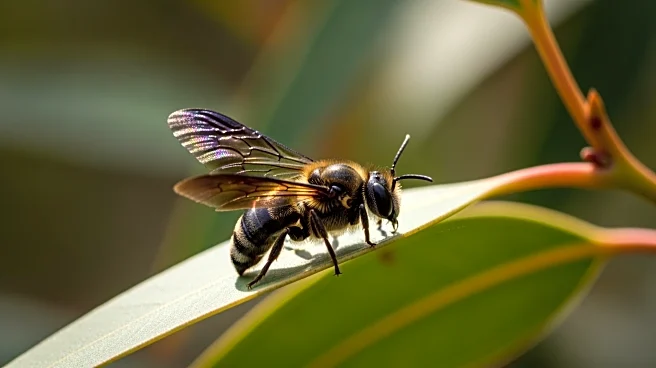What's Happening?
A new species of bee, named Megachile lucifer, has been discovered in Western Australia by researcher Kit Prendergast. The bee is unique for its horns, found only in females, which may serve purposes related to nest defense or pollen gathering. Prendergast's
discovery highlights the importance of studying native bees to understand their role in ecosystems and prevent their extinction.
Why It's Important?
The discovery of Megachile lucifer underscores the urgency of researching native bee species, many of which are endangered. Understanding their ecological roles and dependencies on specific plants is crucial for conservation efforts. The naming of the bee as Lucifer, meaning 'bringer of light,' symbolizes the need to illuminate the importance of preserving biodiversity before it's lost.
What's Next?
Further observations are needed to understand the function of the horns and the ecological role of Megachile lucifer. Continued research on native bees can inform conservation strategies and highlight the need for habitat protection. The discovery may inspire more studies on lesser-known species and their contributions to ecosystem health.
Beyond the Headlines
The naming of the bee reflects broader themes of gender roles in nature, as the horns are a rare feature in female insects. It also highlights the cultural significance of naming species and the impact of scientific discoveries on public awareness of biodiversity issues.















